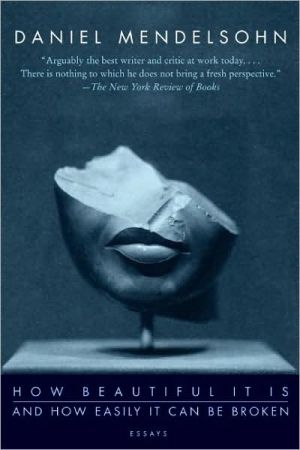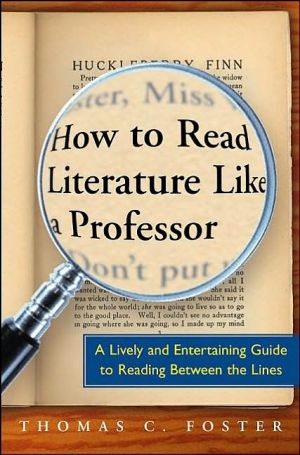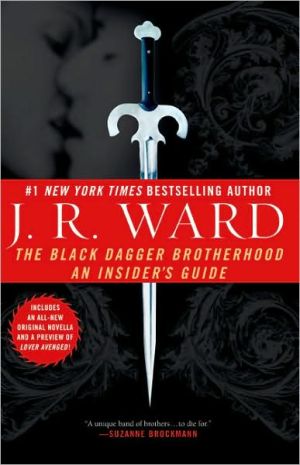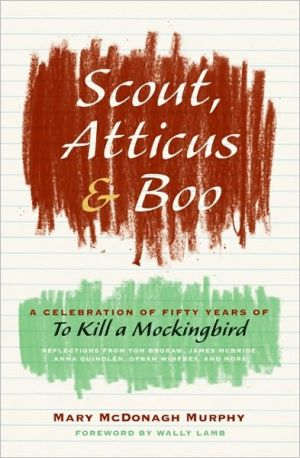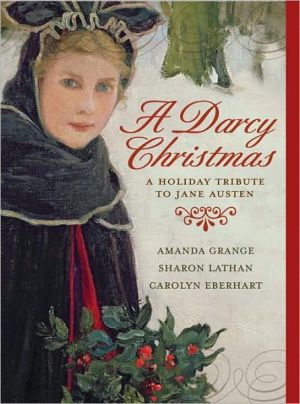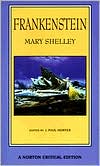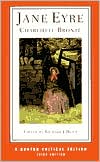How Beautiful It Is and How Easily It Can Be Broken
Whether he's on Broadway or at the movies, considering a new bestseller or revisiting a literary classic, Daniel Mendelsohn's judgments over the past fifteen years have provoked and dazzled with their deep erudition, disarming emotionality, and tart wit. Now, How Beautiful It Is and How Easily It Can Be Broken demonstrates why he is considered one of our greatest critics. Writing with a lively intelligence and arresting originality, he brings his distinctive combination of scholarly rigor and...
Search in google:
Whether he's on Broadway or at the movies, considering a new bestseller or revisiting a literary classic, Daniel Mendelsohn's judgments over the past fifteen years have provoked and dazzled with their deep erudition, disarming emotionality, and tart wit. Now How Beautiful It Is And How Easily It Can Be Broken reveals all at once the enormous stature of Mendelsohn's achievement and demonstrates why he is considered one of our greatest critics. Writing with a lively intelligence and arresting originality, he brings his distinctive combination of scholarly rigor and conversational ease to bear across eras, cultures, and genres, from Roman games to video games. His interpretations of our most talked-about films-from the work of Pedro Almodóvar to Brokeback Mountain, from United 93 and World Trade Center to 300, Marie Antoinette, and The Hours-have sparked debate and changed the way we watch movies. Just as stunning and influential are his dispatches on theater and literature, from The Producers to Jeffrey Eugenides' Middlesex, from The Lovely Bones to the works of Harold Pinter. Together these thirty brilliant and engaging essays passionately articulate the themes that have made Daniel Mendelsohn a crucial voice in today's cultural conversation: the aesthetic and indeed political dangers of imposing contemporary attitudes on the great classics; the ruinous effect of sentimentality on the national consciousness in the post-9/11 world; the vital importance of the great literature of the past for a meaningful life in the present. How Beautiful It Is And How Easily It Can Be Broken makes it clear that no other contemporary thinker is as engaged with as many aspects of our culture and its influences as Mendelsohn is, and no one practices the vanishing art of popular criticism with more acuity, humor, and feeling. \\The Barnes & Noble ReviewWhen Daniel Mendelsohn was 13 years old, he read two Mary Renault novels about Alexander the Great, Fire from Heaven and The Persian Boy, and with that became enthralled with the ancient world. "I became a classicist because of Alexander the Great.the romantic blend of the youthful hero, that Odyssean yearning, strange rites, and panoramic moments -- all spiced with a dash of polymorphous perversity which all the characters seemed to take in stride -- were too alluring to resist. From that moment on all I wanted was to know more about the Greeks," he recounts in "Alexander, the Movie!," one of 30 essays in his new collection, How Beautiful It Is and How Easily It Can Be Broken. Mendelsohn, whose critical essays appear frequently in the New York Review of Books, describes this book as "a collection of judgments," since critics, by definition, judge everything they review. "[A] word that you might not have suspected is even remotely related to 'critic' -- crisis, which in Greek means a separating, a power of distinguishing; a judgment, a means of judging; a trial. For what is a crisis, if not an event that forces us to distinguish between the crucial and the trivial, forces us to reveal our priorities, to apply the most rigorous criteria and judge things?" In this collection, Mendelsohn uses his classical knowledge to judge works in film, theater, fiction and poetry -- works as disparate as Philip Roth's Everyman and Oliver Stone's aforementioned biopic, which Mendelsohn skewers. "The reason it's exhausting, and ultimately boring, to sit through Alexander .is that while it dutifully represents certain events from Alexander's childhood to his death, there's no drama -- no narrative arc, no shaping of events into a good story. They're just being ticked off a list." --Cameron Martin
Introduction How Beautiful It Is And How Easily It Can Be BrokenPt. 1 HeroinesPt. 2 HeroicsPt. 3 ClosetsPt. 4 TheaterPt. 5 War
\ Time Out New York"Brilliant. . . . Masterful. . . . Wise, funny. . . . A wonderful collection."\ \ \ \ \ The New York Sun"Mendelsohn takes on contemporary culture with humor and incisive analysis."\ \ \ Publishers WeeklyIn this elegant collection of essays mostly from the New York Review of Books, NBCC award-winning author Mendelsohn reveals intellectual breadth in his ability to draw on his training as a classicist to look at contemporary culture, from movies like Kill Bill to Broadway musicals like The Producers, and the novels Middlesex and Everyman. They are springboards for Mendelsohn's agile mind to examine subjects like gender, homosexuality, war and peace. In "Victims on Broadway I" he eloquently peels back layer after layer of Tennessee Williams's The Glass Menagerie and criticizes not only the 2005 Broadway production as "stripped of the nuances of character and sensibility" but also the audience for what he sees as their inability to perceive pathos. In a magisterial essay, Mendelsohn finds the same flaw in the blockbuster movie Troy that he believes marred the ancient, lost Greek epics the Cypria and the Little Iliad: unlike Homer's Iliad, they have not "a single unifying action, but a single unifying notion" lacking in epic grandeur. These essays richly repay the time readers spend in their company. (Aug. 12)\ Copyright © Reed Business Information, a division of Reed Elsevier Inc. All rights reserved.\ \ \ \ \ Library JournalOne could easily argue that these essays by Mendelsohn (The Lost) are a critic's criticism. Trained as a classicist, with graduate work in Latin and Greek, he states that he is more interested in writing about popular-culture interpretations of classical texts than about the actual classics. His breadth is quite impressive; he tackles female characters in the work of Pedro Almodóvar, the HBO series Angels in America, and the films The Hours, Kill Bill: Volume I, Brokeback Mountain, World Trade Center, United 93, and more. Within a theater section, he examines The Producers, Private Lives, and recent stagings of classic Greek dramas in New York. Mendelsohn's writing is bold; he is not afraid to be in the minority, for example, when he offers a searing treatment of Alice Sebold's The Lovely Bones in the sarcastically titled "Novel of the Year." Entertaining, thought-provoking, and often controversial, this book is not for the masses but for those who find pleasure in diving into literary criticism. Recommended for large academic and public libraries.\ —Stacy Russo\ \ \ \ \ \ Kirkus ReviewsErudite, occasionally curmudgeonly collection of reviews and ruminations by award-winning memoirist Mendelsohn (The Lost: A Search for Six of Six Million, 2006, etc.). Most of these recent pieces first appeared in the New York Review of Books, whose generous space allotments give the author sufficient latitude to explore texts and performances in expansive, illuminating ways. Reviewing a staging of Euripides's The Children of Herakles, Mendelsohn (Humanities/Bard Coll.) is able to elucidate the play's historical context and the author's biography as well as to comment on the strengths and weaknesses of the design, direction and acting. He can thus display-and his readers benefit from-his potent critical tools: his vast knowledge, particularly of classical antiquity; his comprehensive reading; his remarkable capacity to see the tangled connections invisible to the less learned. Each review gives a mini-seminar on history, literature, biography and the arts. His interests range widely. He intelligently covers films about 9/11, Alexander the Great, the Trojan War and Virginia Woolf, cattily calling Nicole Kidman in The Hours "pretty without being beautiful." He critiques productions of plays by Harold Pinter, Noel Coward, Oscar Wilde (who pops up continually) and Tennessee Williams (who gave Mendelsohn his title). He assesses Thucydides' Histories of the Peloponnesian War and Alice Sebold's The Lovely Bones. Few critics can be more illuminating-and few more dismissive. Read consecutively, Mendelsohn's essays begin to grate. He frequently implies that he alone gets what others manifestly failed to get. Sliced by his critical knife are some of his best-known colleagues, from Frank Richand David Denby to unnamed others who gush and coo, avers the author, over trash, sentimentality and mistakes. Like fine banquet fare: Some items to be wolfed down, some savored slowly, some best stored in the fridge for a later day. Agent: Lydia Wills/Paradigm\ \ \ \ \ The Barnes & Noble ReviewWhen Daniel Mendelsohn was 13 years old, he read two Mary Renault novels about Alexander the Great, Fire from Heaven and The Persian Boy, and with that became enthralled with the ancient world. "I became a classicist because of Alexander the Great...the romantic blend of the youthful hero, that Odyssean yearning, strange rites, and panoramic moments -- all spiced with a dash of polymorphous perversity which all the characters seemed to take in stride -- were too alluring to resist. From that moment on all I wanted was to know more about the Greeks," he recounts in "Alexander, the Movie!," one of 30 essays in his new collection, How Beautiful It Is and How Easily It Can Be Broken. Mendelsohn, whose critical essays appear frequently in the New York Review of Books, describes this book as "a collection of judgments," since critics, by definition, judge everything they review. "[A] word that you might not have suspected is even remotely related to 'critic' -- crisis, which in Greek means a separating, a power of distinguishing; a judgment, a means of judging; a trial. For what is a crisis, if not an event that forces us to distinguish between the crucial and the trivial, forces us to reveal our priorities, to apply the most rigorous criteria and judge things?" In this collection, Mendelsohn uses his classical knowledge to judge works in film, theater, fiction and poetry -- works as disparate as Philip Roth's Everyman and Oliver Stone's aforementioned biopic, which Mendelsohn skewers. "The reason it's exhausting, and ultimately boring, to sit through Alexander ...is that while it dutifully represents certain events from Alexander's childhood to his death, there's no drama -- no narrative arc, no shaping of events into a good story. They're just being ticked off a list." --Cameron Martin\ \
